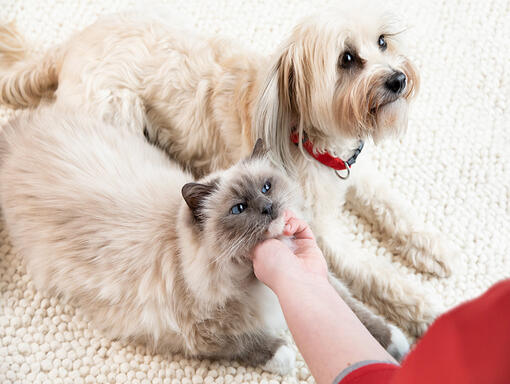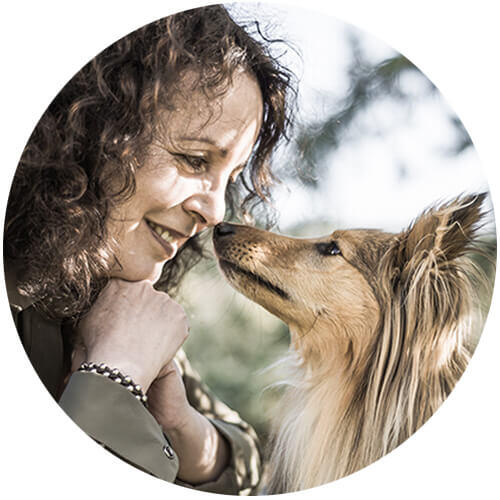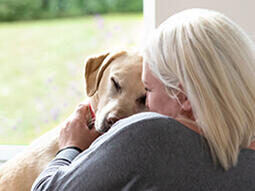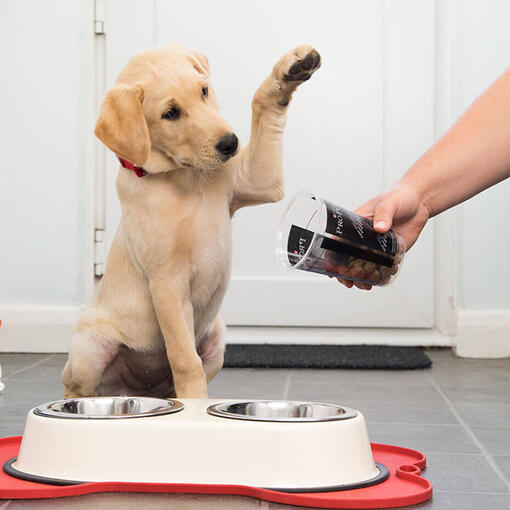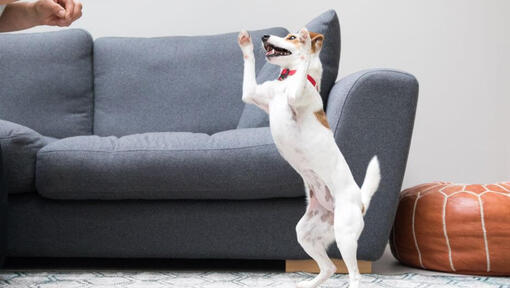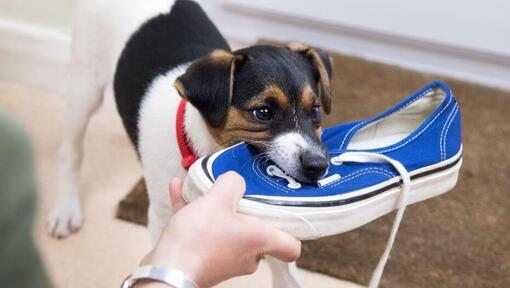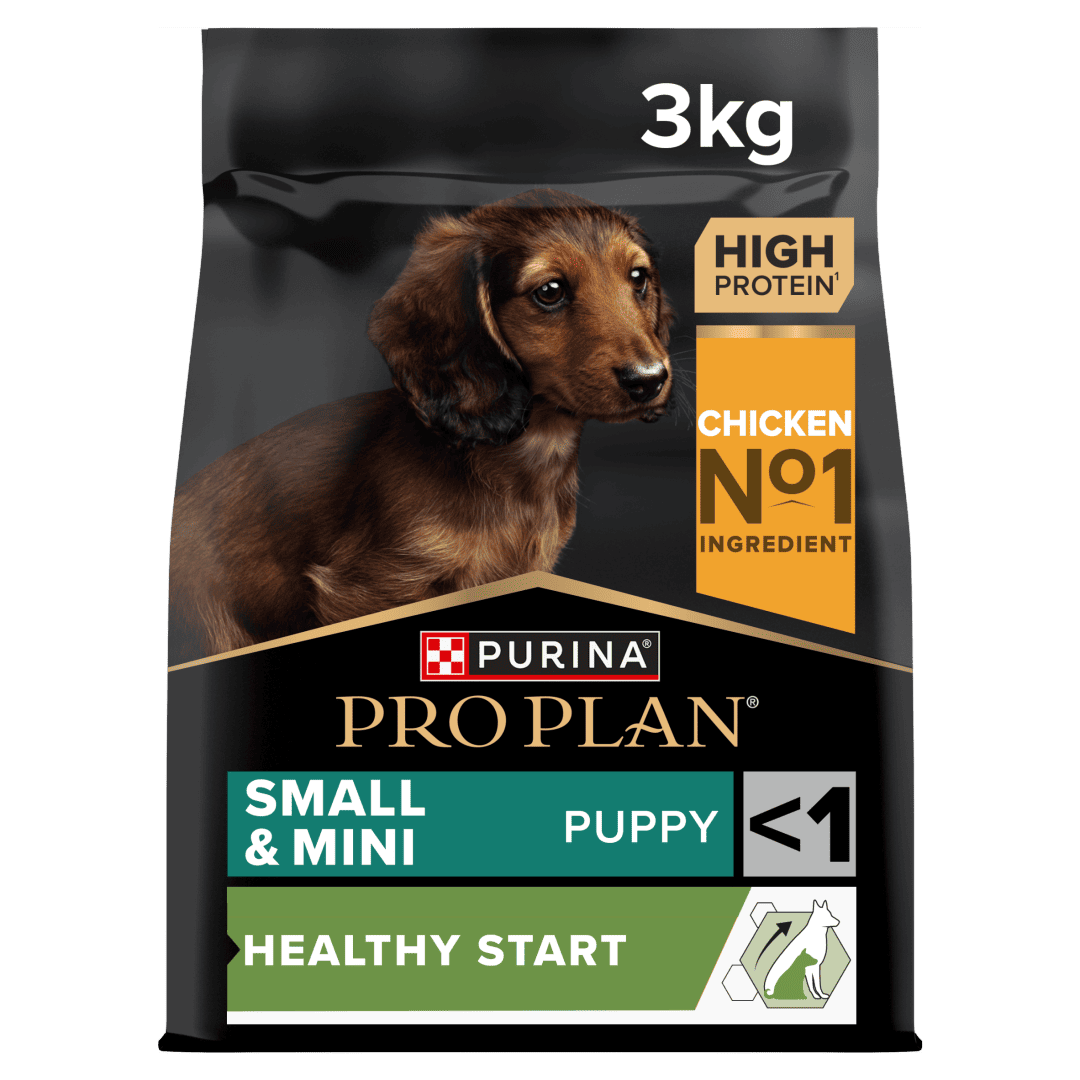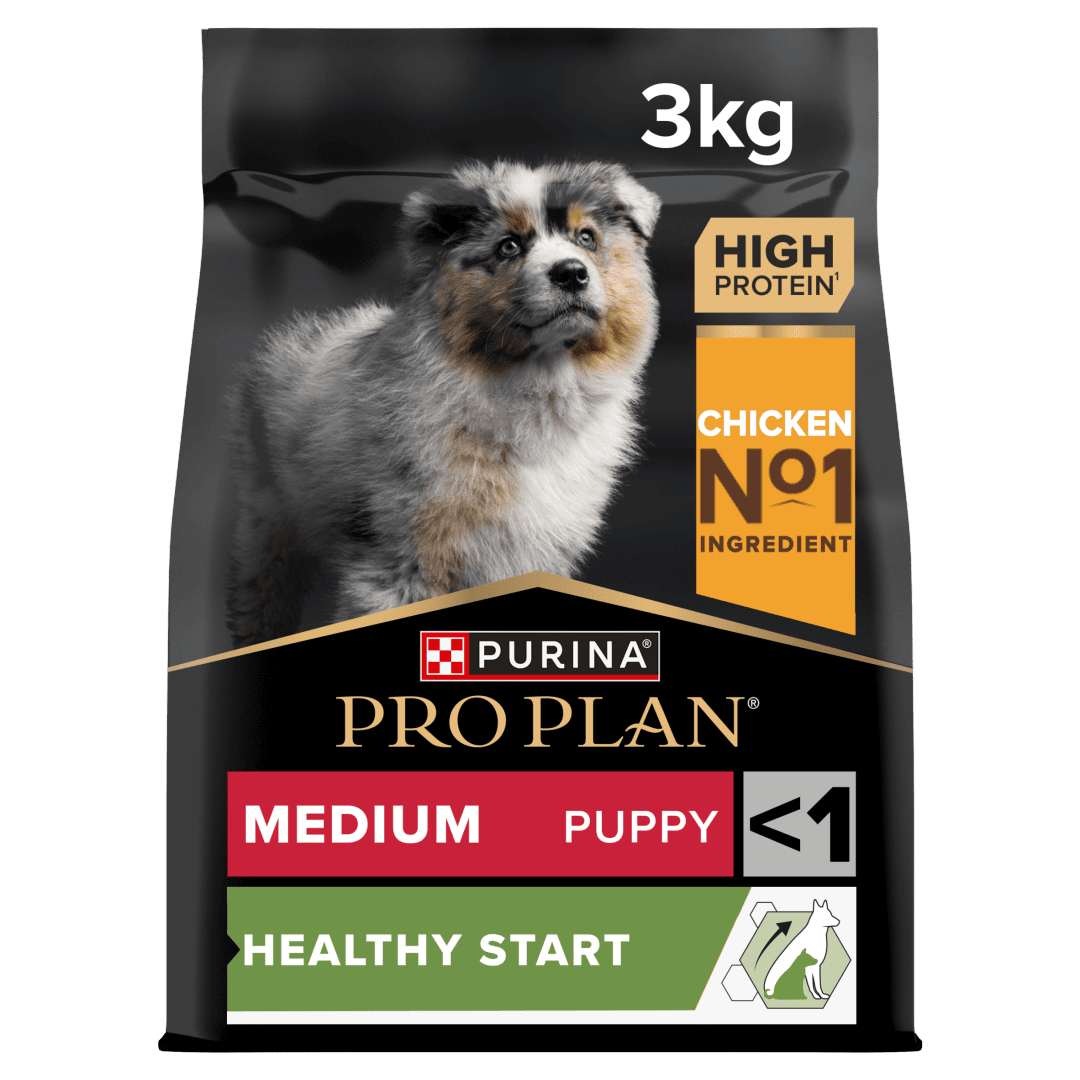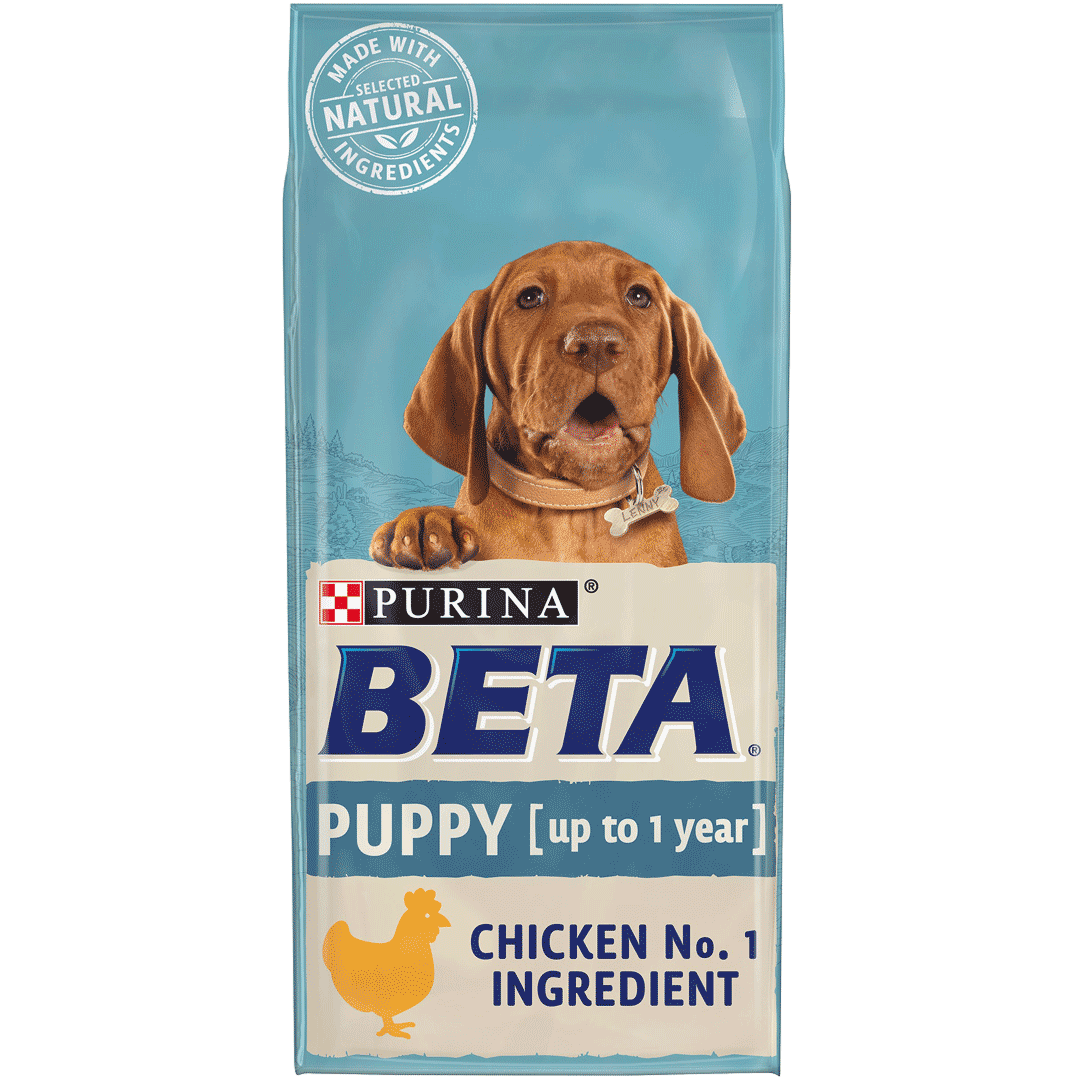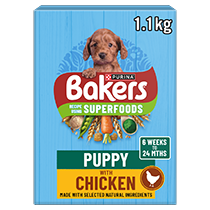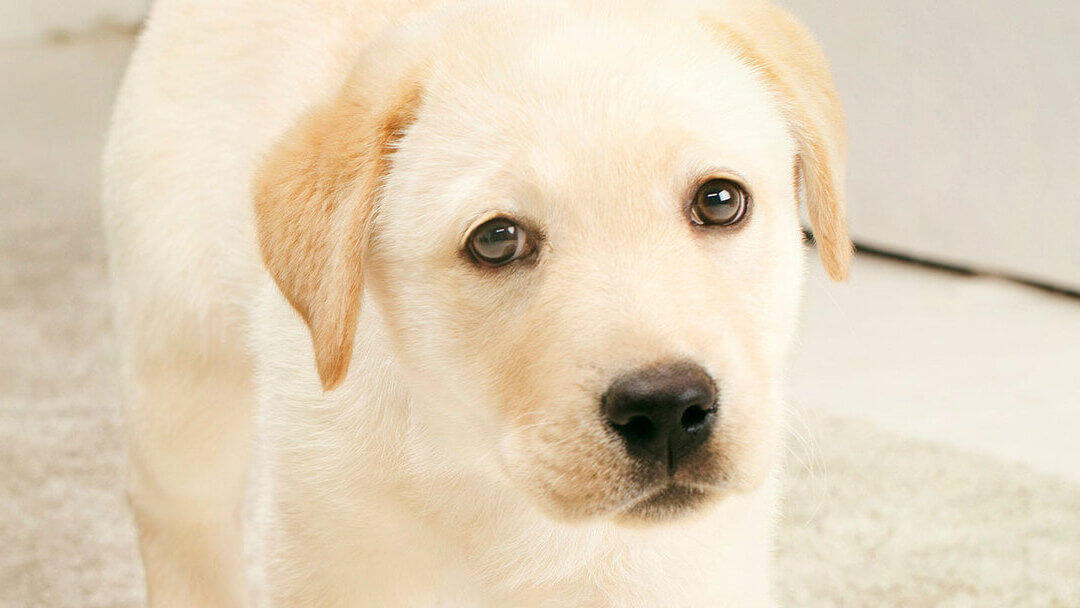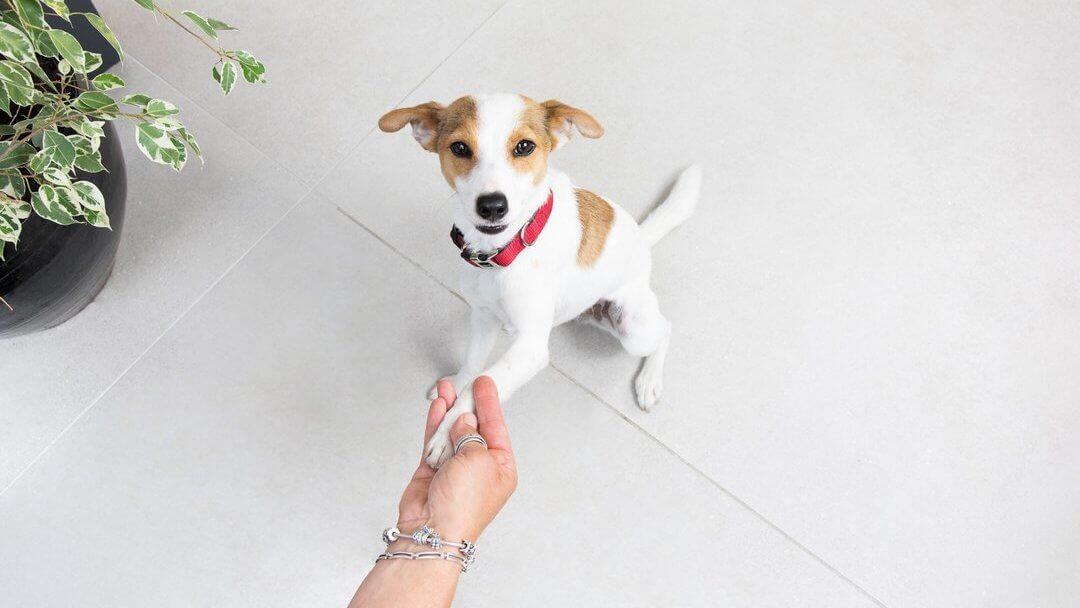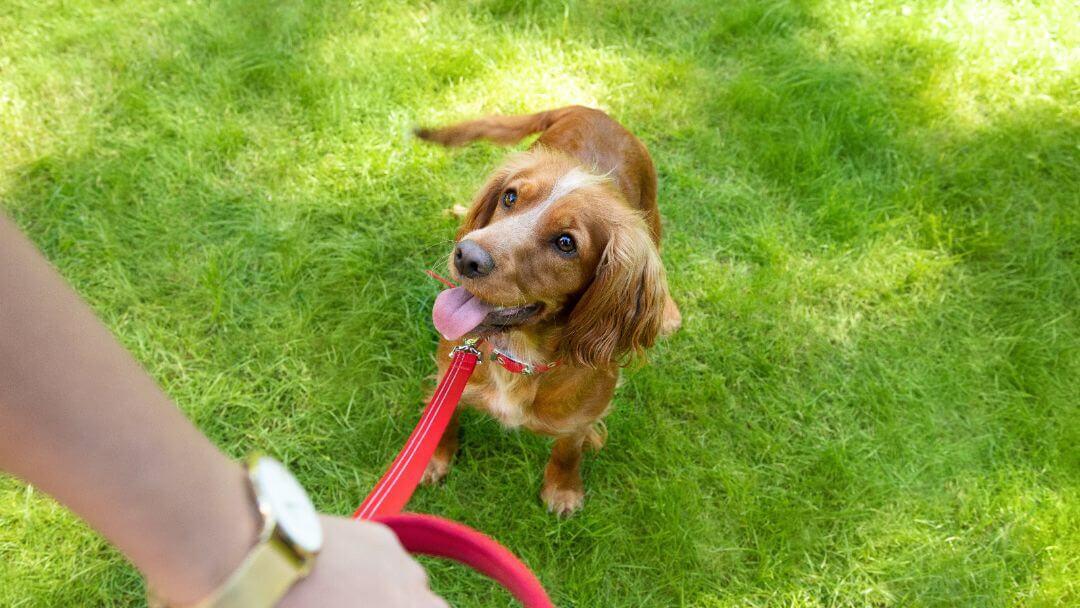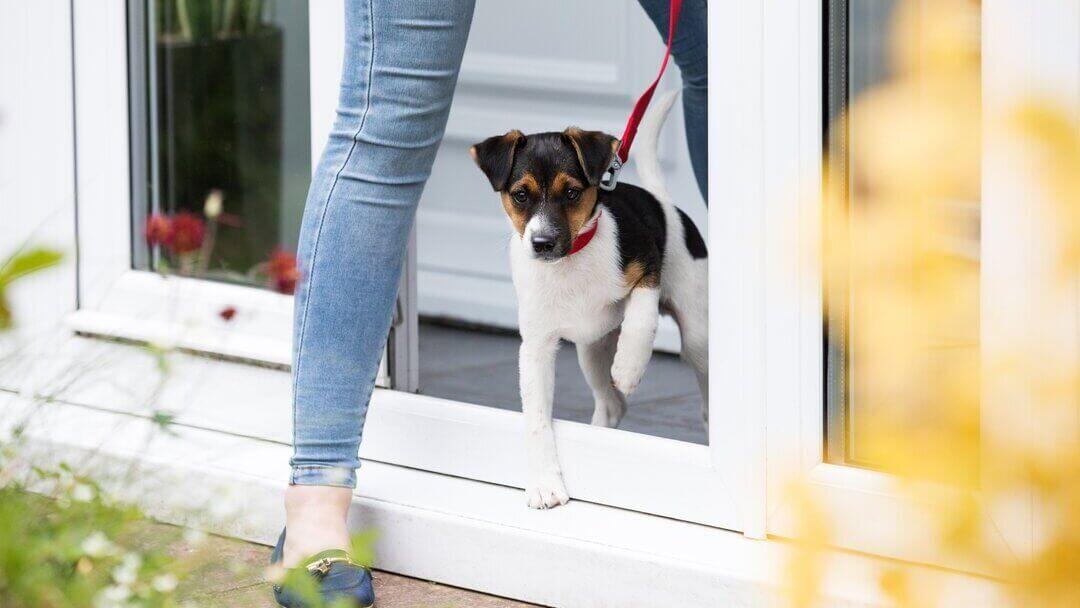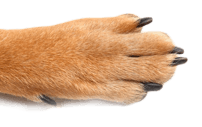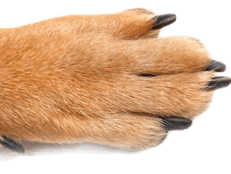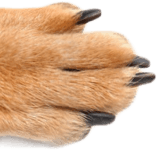

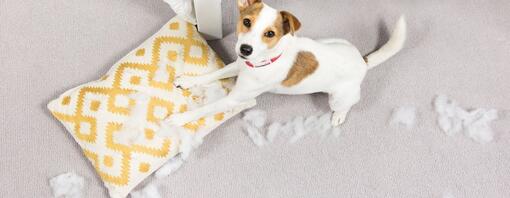
Is your puppy biting or nipping you? There is no doubt that puppy teeth hurt! They are like sharp needles and if they catch your skin while you are playing or interacting with them, it can be really painful!
If you want to stop puppy biting, it is important to remember that this isn’t your pup being aggressive in any way – it is just that they are still a baby, and they have limited ways to play and interact. Up until now, all of their games with their littermates and their mum have involved teeth and biting – so this is what they think play is all about.
Play isn’t just for fun either – it is a great social, bonding exercise. Now that your puppy is part of your family, they want to bond and be social with you, and they only know one way to do that. With teeth!
So while those puppy teeth hurt, it’s important to understand why puppies are biting and start to teach them that playing and interacting with humans has to be done tooth-free.
Find out how to stop puppy biting, mouthing and chewing by reading on.
Why is my puppy biting me?
Puppies bite for different reasons. Firstly, they have limited ways to play and interact – and so this play will often involve teeth. Some pups bite because they are excited, others because they are frustrated. Often it is because they are over-tired and getting a bit fractious. But another simple cause for biting is that it is part of their physical development and it teaches puppies how their own teeth and jaws work. They bite as part of this developmental process.
Here is how to figure out the cause in your puppy’s case.
Puppy biting as socialisation
When a puppy is with their littermates and their mum, all games and social interactions involve biting. That is the only way they have to play at that age – and so they expect that is the way you will want to play too.
This puppy biting is an important life stage that teaches them how to use their teeth appropriately.
When puppies in a litter play together, this play will involve lots of rough and tumble and play-biting. This is how puppies learn to interact with each other and also how to limit their biting. If they bite too hard or the play gets too rough, the other puppies or their mother will stop playing with them, so they learn that if they want the games and the fun to continue, they have to be more careful with their teeth. This teaches a valuable lesson about appropriate interactions with others.
Some breeds or types will bite more – or at least be more mouth-focused. Many of our more popular breeds are gundogs of gundog crosses, and many of those were developed to bring things back in their mouth – so as puppies, everything goes in their mouth! Others we developed to have lightning-fast reactions and to grab things. Discover more about gun dog breeds and everything you need to know about them.
Excitement biting
It is easy for puppies to get overly excited – especially if you play rough games with them. Puppies don’t have many ways to deal with this excitement and arousal – and so biting is an almost surefire result.
Overtired biting
Just like fractious toddlers, an overtired puppy is often a fractious and bite-y puppy. Puppies need far more sleep than most people realise - an eight-week-old puppy needs to sleep for around 20 hours a day! Not only will this reduce a lot of their biting behaviour, but it will also help them learn better too.
Schedule nap times into your puppy’s day to make sure they are getting their beauty sleep.
Do puppies bite when they’re frustrated?
Puppies often bite when they are frustrated – so if they are not getting what they want or sometimes if you are preventing them from doing something, that frustration can lead them to bite – especially if they are also over-tired or over-stimulated.
By understanding the reasons why puppies bite, you are well on the way to being able to prevent it.
Top Tips on how to stop puppy biting
Puppy teeth are sharp and their jaws are weak. This means that while bites can hurt, they don’t cause injury and this helps them to learn bite inhibition from their littermates and their mum – and this happens through interactions and play. As a result, however, the occasional painful nip might happen while you and your puppy are playing.
When your puppy comes home with you and is living in a human family, they need to be taught that games with humans don’t include teeth! You don't want puppy biting to be a continued behaviour into adulthood but you do want to teach them appropriate ways for you to play and have fun together.
Here is how to prevent puppy biting during play:
- Don't play rough with your hands: Don’t play rough games with your puppy or push them around with your hands (or feet), this is just encouraging them to use their teeth to grab at you. Hands and feet aren’t for playing with.
- Teach puppies that hands are good things: All interactions with your hands should be gentle and soothing; stroking, ear rubs, back-scratching etc. Your puppy should learn that your hands are good things and not tug toys or dog chews.
- Games of tug do not include hands: For gentle games of tug, use toys and not your hands. Again, your puppy should learn that your hands are not for biting. If they do bite your hands, redirect their attention to a toy.
- Deflect biting to toys: Have chewable toys to hand – and if your puppy starts getting a bit bite-y, deflect them on to the toy instead.
- Curb your enthusiasm: When you see your puppy getting over-excited, stop play or do something calming like scattering a few treats on the floor for your puppy to sniff out. This will take their nose (and teeth) away from your hands.
- Sleep: Make sure your puppy is getting enough sleep.
- Gentle handling: Handle your puppy gently – whatever you are doing with them. You want to set up positive associations with your hands.
When to seek help
If you have any concerns that biting is turning from play into something more aggressive, contact a behaviourist for advice.
What is mouthing
Mouthing is a puppy’s way of exploring the world; this includes them mouthing you! Puppies might mouth on you when patted and scratched. Mouthing differs from biting as it is all about putting their mouth round you gently not biting you with their teeth!
However, it can turn into biting – or into a habit - if they get more excited or as they age so it’s good to stop this kind of mouthing as puppies.
How to stop puppy mouthing
There is a big difference between biting and mouthing. Mouthing doesn’t usually hurt – as long as it doesn’t get overly-enthusiastic - and some dogs (especially some gundogs – whose jobs are all about carrying and holding things so can be rather mouth-focussed) will naturally play this way. While some owners don’t mind this, it can be a bit slobbery and while it isn’t painful, some people don’t like it – and if you have children or vulnerable adults in the house, you don’t want teeth anywhere near skin at all.
Also, some dogs can start off by playing and then get over-aroused and gentle mouthing can turn into something harder and more painful.
Here is how to stop puppy mouthing:
1. Understand why your puppy or dog is mouthing
This usually starts off as play and as a way to interact with you
2. Avoid overreacting to mouthing
While you might not be happy about having your dog’s mouth around your hand or arm, remember they are playing – or possibly trying to get your attention. Telling them off, shouting at them, or physically punishing them isn’t appropriate – and could well damage the bond you have with your dog – or turn happy, playful mouthing into using their teeth more seriously in fear or surprise.
3. Don’t make puppy mouthing a game
While you might know your puppy or dog is playing, this isn’t a game to encourage. Stop the game, don’t react, swap for a toy to given them something more appropriate to mouth – this will give a clear signal that you don’t play that way with humans. Make sure everyone in the family does the same.
4. Distract your puppy
Redirecting your puppy’s attention to something else is a great way to teach them that there are some things that can be mouthed – and that is a great fun game you are very happy to play – and some things that can’t – and people come firmly into that category. Having their favourite toy nearby, ready to give to them when they’re mouthing will help you distract them successfully. Having a good game with your puppy with that toy will make that seem even more exciting.
5. Don’t play over-arousing games with your puppy
Often over-arousal or excitement will lead dogs to use their mouths – as they don’t have that make ways to play! Especially don’t play over-arousing games using your hands (such as pushing or shoving them about). Also don’t hold on to them, grab them or treat them roughly – as you can hardly blame them if they respond in kind!
6. Reward your puppy’s good behaviour
Make sure you reward your puppy when they are playing without using teeth. Be encouraging when they are playing with you with tuggy toys or things they can bite and chew that aren’t hands.
With some consistency and reward-based training, your puppy will soon learn that games with people need to be gentle and tooth-free.
This will not happen overnight – and there will be plenty of slips along the way – but be consistent and patient and soon biting will be a thing of the past.
Why do puppies chew things?
If you’re wondering ‘why do puppies chew?’, it’s because chewing is a natural puppy behaviour that helps develop their teeth and jaws! Chewing is also calming for a dog and is a great stress reliever – as well as being enjoyable.
Owners shouldn’t try and stop their puppy chewing as all dogs need to do it but instead should make sure they give their puppy things to chew that are appropriate, safe and enjoyable to gnaw on.
How to stop puppy chewing things
Even though puppy chewing is normal, we need to encourage safer ways to chew. Here’s how to stop puppy chewing.
- Give your puppy lots of safe chew toys to give them an outlet for their need to gnaw. If you can, redirect their puppy chewing to these toys, they won’t focus so much on the items you do not want them to chew. For example, if they’re chewing your slipper, don’t try and take it away from them as it will just turn it into a great fun tug toy! Instead find one of your puppy’s chew toys, make it irresistible by playing with it and your puppy will lose interest in your slipper almost immediately.
- Make these toys far more interesting than anything else they may consider chewing. You can do this by buying toys that you can put treats or food inside, or that have a texture or make a noise that your puppy enjoys. Use some trial and error to find out what your puppy really enjoys, as long as it is safe and healthy.
- Don't provide temptation! If you have things lying around on the floor or within puppy reach, you can’t expect them not to have a nibble on them. Puppies don’t know what is theirs and what isn’t!
- Praise your puppy when you see them chewing a safe and appropriate toy – and maybe even join in the game. This encourages your pup to chew on things they’re supposed to chew on!
- Chewing can also occur when your puppy is bored. Make sure you are spending lots of quality time with them, giving them plenty of enrichment and interactive toys and games, and that they are not being left on their own for long periods of time.
If you are concerned that your puppy is chewing excessively, take them for a check-up with your vet. They can help if your puppy is teething and has a sore mouth or gums. If you are still worried, a qualified and experienced behaviourist will be able to help you understand the root of non-clinical chewing issues.
Now that you know all about why puppies bite you and how to stop puppy biting, find out more puppy advice and tips, like how to stop your puppy from jumping up on you.

